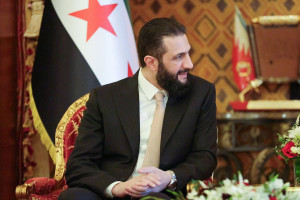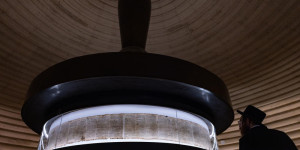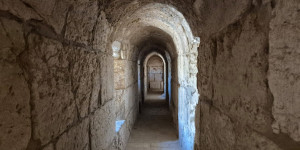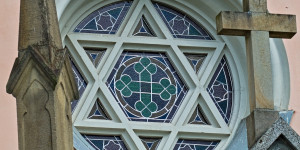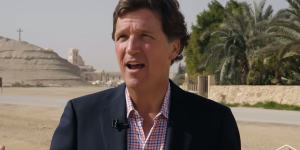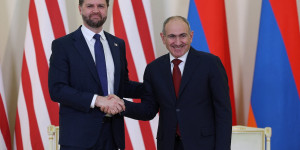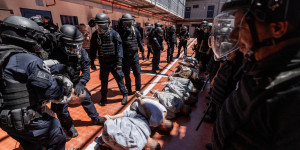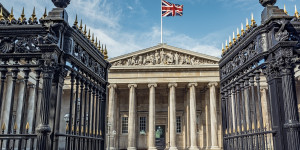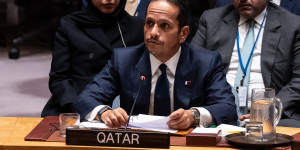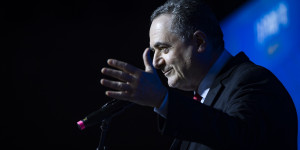EU and Qatar lift sanctions, offer training to help Syria keep its fragile new stability
US lifted sanctions to prevent imminent new civil war, Qatar trains new police force
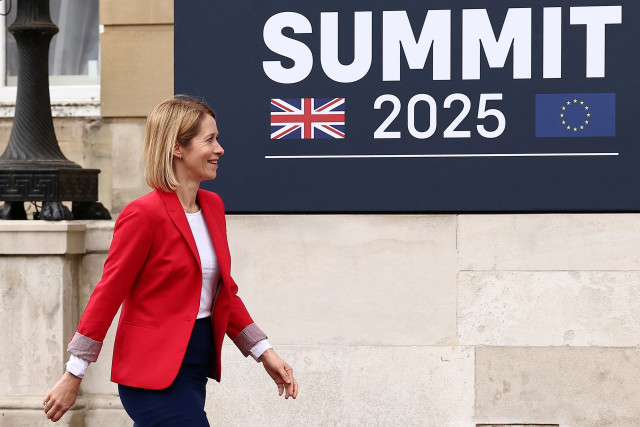
With the country approaching peace after over a decade of civil war, Syria’s new government continues to face enormous challenges regarding the abysmal economic situation and the fragile state of security.
Therefore, among the most important goals of former Islamist terrorist and new president Ahmad al-Sharaa has been to remove the many sanctions that were placed on Syria during the reign of the Assad regime, enabling him to restore the economy and build an effective government apparatus.
Following an initial success, when U.S. President Donald Trump vowed to lift all sanctions, the foreign ministers of the European Union said on Tuesday that they would do the same.
“We want to help the Syrian people rebuild a new, inclusive and peaceful Syria,” said Kaja Kallas, the European Union’s head diplomat.
The sanctions that stand to be canceled include an embargo on oil imports, restrictions on imports and exports of certain technologies, and financial limitations, according to The New York Times.
Speaking to Ynet News on Tuesday, Dr. Karmit Valensi, senior researcher at the Institute for National Security Studies (INSS), explained the civil war’s dramatic impact on the Syrian economy.
“We’re talking about a destroyed country where more than 50% of its basic infrastructure has been destroyed, very high unemployment rates, over 90% below the poverty line, a severe shortage of basic goods. Even in Damascus, the capital, there are only a few hours of electricity [per day],” Valensi said.
“So the economic situation is very difficult, high prices; the value of the Syrian pound is at an unprecedented low in recent years.”
The Media Line reported this week that Syria is weighing the overhauling of its currency in an attempt to stop its depreciation. Before the war, one U.S. dollar equaled around 47 Syrian pounds, whereas today, black market rates are over 15,000 pounds to the dollar.
Valensi added that the sanctions “prevented any ability to invest economically in Syria, and we are already now hearing about plans for infrastructure reconstruction projects and easing the transfer of funds through banks, the return of activity by international companies.”
According to estimates cited by Valensi, rehabilitating the country could take half a century and cost at least $250 billion, with the most important players expected to be Turkey, as well as the Gulf states, particularly Qatar.
While the EU decided to lift economic sanctions, Kallas said that sanctions on military equipment would continue, “based on security grounds, including arms and technology that might be used for internal repression.”
“There are worries about whether the government is going in the right direction,” Kallas acknowledged. “But I think we do not have a choice. We actually either give them the possibility to stabilize the country, or we do not do that.”
The issue of security and the new government’s control on the ground has been tightly linked to the prospects of economic rehabilitation.
U.S. State Secretary Marco Rubio mentioned on Tuesday that the U.S. worried Syria had been only “weeks” away from descending into a “full-scale civil war of epic proportions,” and therefore decided to lift its sanctions to forestall that scenario.
The government is dominated by former members of Hay’at Tahrir al-Sham, the Islamist group that led a coalition of dozens of groups against the Assad regime.
President al-Sharaa has been struggling to impose the state’s authority on the remaining Islamist and Jihadist groups, some of which took part in the sectarian killings of Alawites and Druze minorities.
Reports suggested that members of the new government’s security forces were also involved, suggesting a lack of internal control and discipline.
The Kurds in the northeast and the Druze in the south also maintain separate militias that are yet to be brought under the state’s umbrella, while ISIS remains active in the Syrian desert, and Assadist remnants continue to foment unrest.
Kan News reported that Qatar has begun training small groups of Syrian security forces on Qatari soil to serve as the future police force, in a significant step toward imposing order and security
Qatar also recently vowed to pay almost $30 million in salaries to public sector officials in Syria and, together with Saudi Arabia, settled Syria’s fifteen million dollar debt with the World Bank.
Regarding Israel’s stance toward the new Syria, Valensi commended the reports of intensifying contacts after Israel initially focused on military operations while diplomatically opposing the new regime.
“It is impossible to continue only with attacks and territorial control. We might create a self-fulfilling prophecy – because we are there militarily to prevent threats, but these threats do not necessarily exist today. And the more we maintain military activity and are perceived as aggressive attackers, we will stir feelings of resistance against Israel, and such voices are beginning to be heard in Syria,” she warned.
“There must be a better balance between military activity and diplomatic dialogue – to maintain a proper degree of suspicion but to do so in the right balance. This is the time to take advantage of the fact that the regime is still in a relatively weak position, it has not fully stabilized, and therefore there is leverage to achieve as much as possible of our security interests – and perhaps in the end, even normalization between the countries, but that will likely take more time,” she added.

The All Israel News Staff is a team of journalists in Israel.
You might also like to read this:


